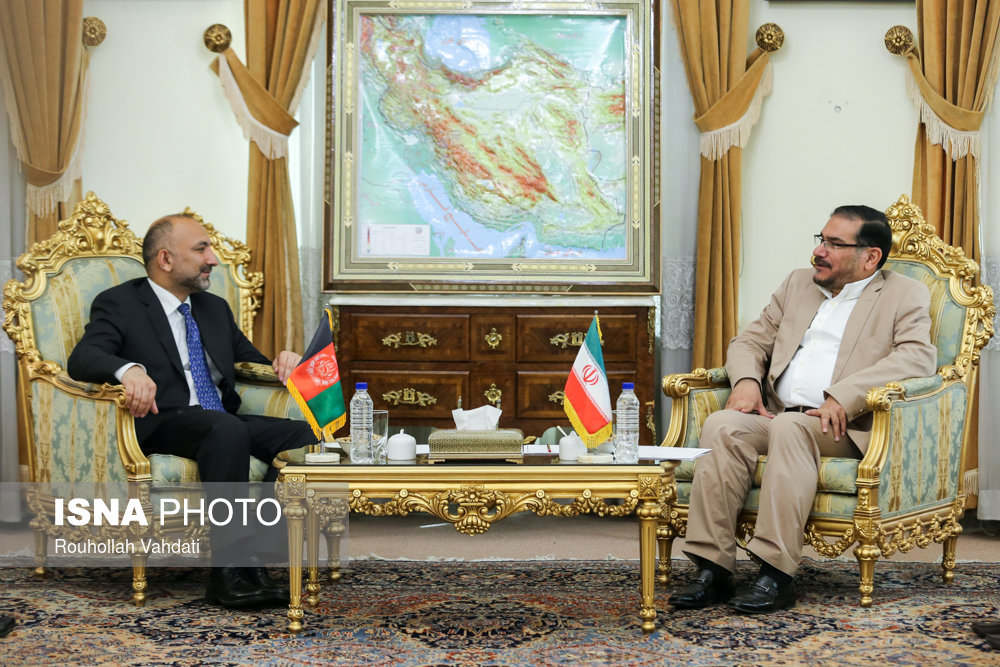Iran, Afghanistan exchange views on water, security, border control

TEHRAN – Talks on a wide range of mutual concerns, particularly water shortage, terrorism, border control, and drug smuggling were the main themes of a session between Iranian Supreme National Security Council Secretary Ali Shamkhani and Mohammad Hanif Atmar, national security advisor to the Afghan president on Saturday.
“Water is the main source of development and prosperity at the two countries’ borderlines and based on a joint framework, it should serve as a tool to expand friendship and cooperation to generate prosperity for the border people,” Shamkhani told the visiting Afghan security official.
Located in an arid and semi-arid region coupled with low precipitation over the past years, the two countries have disagreements over the Hirmand River, a main basin for Sistan- Baluchestan province, southeastern Iran.
Border control, fight on terrorism depend on security talks
Elsewhere in his remarks, Shamkhani highlighted the importance of secure borders for economic prosperity and development of infrastructure. “Preventing terrorist moves and drug smuggling at borderlines won’t be possible without purposeful collaboration and convergent strategies.”
36 years of civil war and foreign aggressions have made Afghanistan’s borders insecure. The country shares more than 900 kilometers of borders with Iran.
The borderlines also have been costly for Iran to guard against drug smugglers. Both countries are located across the ‘Balkan’ route which is one of the main heroin trafficking corridors.
The global increase in heroin seizures over the period 2006-2008 was driven mainly by continued burgeoning seizures in the Islamic Republic of Iran and Turkey.
Only in 2014, Iran reported seizures of 393,013 Kilograms of opium, according to the United Nations Office on Drug and Crime, one of the highest seizure records in the world.
Of a total of an annual flow of 430-450 tons of heroin into the global heroin market, some 380 tons of heroin and morphine is produced exclusively from Afghan opium.
While approximately 5 tons are consumed and seized in Afghanistan, the remaining bulk of 375 tons is trafficked worldwide via routes flowing into and through the countries neighboring Afghanistan, including Iran.
‘Need for comprehensive war on terrorism’
The Afghan official, for his part, called for closer cooperation between Tehran and Kabul, stressing the need for a “comprehensive fight against extremism and terrorism to secure the region.”
He also urged expansion of ties to achieve sustainable border security and staunch the flow of drug smuggling.
AK/PA
Leave a Comment